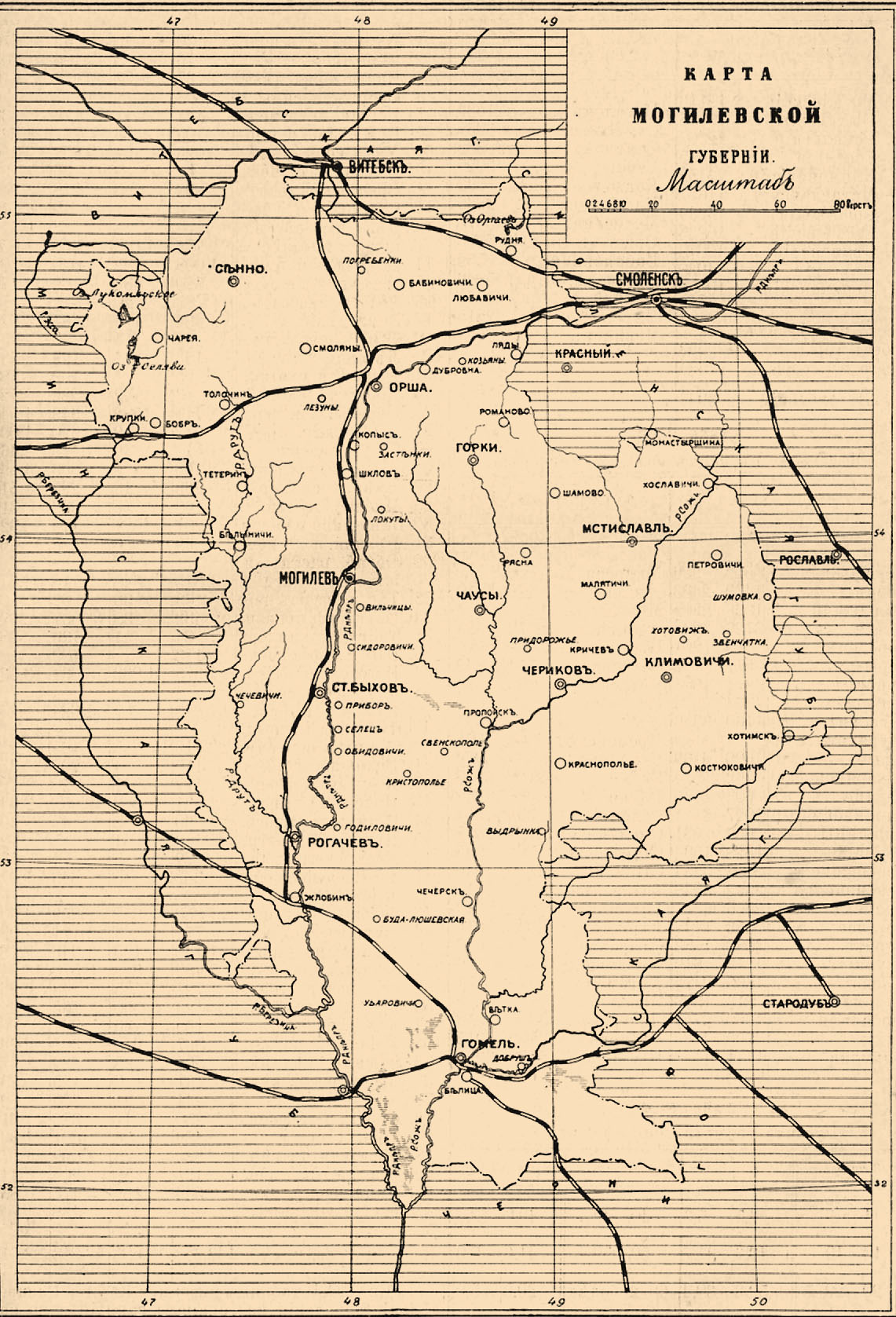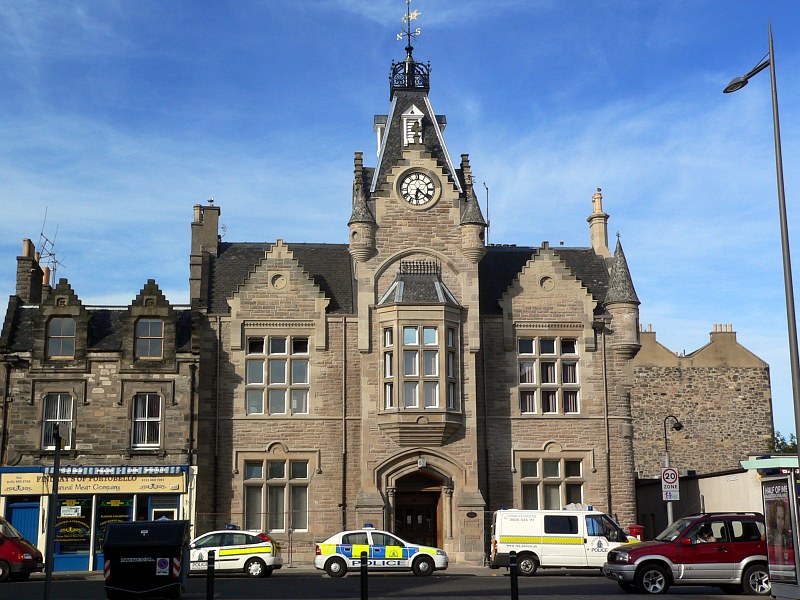|
Elieser Bassin
Elieser Bassin (1840–1898) was a Russian-Jewish convert to Christianity, and an author and proponent of British Israelism. Life Born in 1840 to a wealthy Russian Jewish family in Mogilev (present day Belarus) Elieser later converted to Christianity in 1869 and became a missionary and member of the "London Jewish Society for Promoting Christianity Among the Jews". He later moved and settled in Britain and through the literature of Edward Hine became a proponent of British Israelism. In 1885 Bassin was appointed as the first director of the "Scottish Home Mission to the Jews" in Edinburgh, a position he held until his death in 1898. British Israelism Elieser is credited as the first Jewish convert to British Israelism. In 1884 he delivered a lecture entitled "God's Dealings With His Chosen People Israel" to a crowd of British Israelites in Portobello, Edinburgh."The British and the Jews—Are They Brethren?", Portobello Advertiser (Edinburgh, 13 Dec. 1884). In his book ''British ... [...More Info...] [...Related Items...] OR: [Wikipedia] [Google] [Baidu] |
Russians
, native_name_lang = ru , image = , caption = , population = , popplace = 118 million Russians in the Russian Federation (2002 ''Winkler Prins'' estimate) , region1 = , pop1 = approx. 7,500,000 (including Russian Jews and History of Germans in Russia, Ukraine and the Soviet Union, Russian Germans) , ref1 = , region2 = , pop2 = 7,170,000 (2018) ''including Crimea'' , ref2 = , region3 = , pop3 = 3,512,925 (2020) , ref3 = , region4 = , pop4 = 3,072,756 (2009)(including Russian Jews and Russian Germans) , ref4 = , region5 = , pop5 = 1,800,000 (2010)(Russian ancestry and Russian Germans and Jews) , ref5 = 35,000 (2018)(born in Russia) , region6 = , pop6 = 938,500 (2011)(including Russian Jews) , ref6 = , region7 ... [...More Info...] [...Related Items...] OR: [Wikipedia] [Google] [Baidu] |
Jewish
Jews ( he, יְהוּדִים, , ) or Jewish people are an ethnoreligious group and nation originating from the Israelites Israelite origins and kingdom: "The first act in the long drama of Jewish history is the age of the Israelites""The people of the Kingdom of Israel and the ethnic and religious group known as the Jewish people that descended from them have been subjected to a number of forced migrations in their history" and Hebrews of historical History of ancient Israel and Judah, Israel and Judah. Jewish ethnicity, nationhood, and religion are strongly interrelated, "Historically, the religious and ethnic dimensions of Jewish identity have been closely interwoven. In fact, so closely bound are they, that the traditional Jewish lexicon hardly distinguishes between the two concepts. Jewish religious practice, by definition, was observed exclusively by the Jewish people, and notions of Jewish peoplehood, nation, and community were suffused with faith in the Jewish God, ... [...More Info...] [...Related Items...] OR: [Wikipedia] [Google] [Baidu] |
British Israelism
British Israelism (also called Anglo-Israelism) is the British nationalist, pseudoarchaeological, pseudohistorical and pseudoreligious belief that the people of Great Britain are "genetically, racially, and linguistically the direct descendants" of the Ten Lost Tribes of ancient Israel. With roots in the 16th century, British Israelism was inspired by several 19th century English writings such as John Wilson's 1840 ''Our Israelitish Origin''. From the 1870s onward, numerous independent British Israelite organizations were set up throughout the British Empire as well as in the United States; as of the early 21st century, a number of these organizations are still active. In America, the idea gave rise to the Christian Identity movement. The central tenets of British Israelism have been refuted by archaeological, ethnological, genetic, and linguistic research. History Earliest recorded expressions According to Brackney (2012) and Fine (2015), the French Huguenot magistrate M. ... [...More Info...] [...Related Items...] OR: [Wikipedia] [Google] [Baidu] |
Mogilev
Mogilev (russian: Могилёв, Mogilyov, ; yi, מאָלעוו, Molev, ) or Mahilyow ( be, Магілёў, Mahilioŭ, ) is a city in eastern Belarus, on the Dnieper River, about from the border with Russia's Smolensk Oblast and from the border with Russia's Bryansk Oblast. , its population was 360,918, up from an estimated 106,000 in 1956. It is the administrative centre of Mogilev Region and the third-largest city in Belarus. History The city was first mentioned in historical records in 1267. From the 14th century, it was part of the Grand Duchy of Lithuania, and since the Union of Lublin (1569), part of the Polish–Lithuanian Commonwealth, where it became known as ''Mohylew''. In the 16th-17th centuries, the city flourished as one of the main nodes of the east–west and north–south trading routes. In 1577, Polish King Stefan Batory granted it city rights under Magdeburg law. In 1654, the townsmen negotiated a treaty of surrender to the Russians peacefully ... [...More Info...] [...Related Items...] OR: [Wikipedia] [Google] [Baidu] |
Belarus
Belarus,, , ; alternatively and formerly known as Byelorussia (from Russian ). officially the Republic of Belarus,; rus, Республика Беларусь, Respublika Belarus. is a landlocked country in Eastern Europe. It is bordered by Russia to the east and northeast, Ukraine to the south, Poland to the west, and Lithuania and Latvia to the northwest. Covering an area of and with a population of 9.4 million, Belarus is the 13th-largest and the 20th-most populous country in Europe. The country has a hemiboreal climate and is administratively divided into seven regions. Minsk is the capital and largest city. Until the 20th century, different states at various times controlled the lands of modern-day Belarus, including Kievan Rus', the Principality of Polotsk, the Grand Duchy of Lithuania, the Polish–Lithuanian Commonwealth, and the Russian Empire. In the aftermath of the Russian Revolution in 1917, different states arose competing for legitimacy amid the ... [...More Info...] [...Related Items...] OR: [Wikipedia] [Google] [Baidu] |
Edward Hine
Edward Hine (10 February 1825 – 15 October 1891) was an influential proponent of British Israelism in the 1870s and 1880s, drawing on the earlier work of Richard Brothers (1794) and John Wilson (1840). Hine went as far as to conclude that "It is an utter impossibility for England ever to be defeated. And this is another result arising entirely from the fact of our being Israel." Career A bank clerk by occupation, Hine claimed that he had been inspired by a lecture given by Wilson, which he heard at the age of 15, but he himself did not publish on the topic for nearly thirty years, giving his first public lecture in 1869. For several years Hine published a weekly journal, ''The Nation's Leader,'' and a monthly magazine, ''Life from the Dead'' (from 1873 onwards). In 1880, Hine founded his own British Israel organization, "The British-Israel Identity Corporation." David Baron in his ''The History of the Ten "Lost" Tribes'' cites claims identifying Hine himself with the "Deliverer ... [...More Info...] [...Related Items...] OR: [Wikipedia] [Google] [Baidu] |
Portobello, Edinburgh
Portobello is a coastal suburb of Edinburgh in eastern central Scotland. It lies 3 miles (5 km) east of the city centre, facing the Firth of Forth, between the suburbs of Joppa and Craigentinny. Although historically it was a town in its own right, it is officially a residential suburb of Edinburgh. The promenade fronts onto a wide sandy beach. History Early years The area was originally known as Figgate Muir, an expanse of moorland through which the Figgate Burn flowed, from Duddingston Loch fed by the Braid Burn to the west, to the sea, with a broad sandy beach on the Firth of Forth. The name "Figgate" has been thought to come from an Old English term for "cow's ditch", but the land was used as pasture for cattle by the monks of Holyrood Abbey and the name is more likely to mean "cow road", as in Cowgate in Edinburgh. In 1650 it was the supposed scene of a secret meeting between Oliver Cromwell and Scottish leaders. A report from 1661 describes a race in which ... [...More Info...] [...Related Items...] OR: [Wikipedia] [Google] [Baidu] |
Ephraim
Ephraim (; he, ''ʾEp̄rayīm'', in pausa: ''ʾEp̄rāyīm'') was, according to the Book of Genesis, the second son of Joseph ben Jacob and Asenath. Asenath was an Ancient Egyptian woman whom Pharaoh gave to Joseph as wife, and the daughter of Potipherah, a priest of ʾĀwen. Ephraim was born in Egypt before the arrival of the Israelites from Canaan. The Book of Numbers lists three sons of Ephraim: Shuthelah, Beker, and Tahan. However, 1 Chronicles 7 lists eight sons, including Ezer and Elead, who were killed in an attempt to steal cattle from the locals. After their deaths he had another son, Beriah. He was the ancestor of Joshua, son of Nun ben Elishama, the leader of the Israelite tribes in the conquest of Canaan. According to the biblical narrative, Jeroboam, who became the first king of the Northern Kingdom of Israel, was also from the house of Ephraim. Biblical criticism The Book of Genesis related the name "Ephraim" to the Hebrew root פָּרָה (pārā), ... [...More Info...] [...Related Items...] OR: [Wikipedia] [Google] [Baidu] |
1840 Births
__NOTOC__ Year 184 ( CLXXXIV) was a leap year starting on Wednesday (link will display the full calendar) of the Julian calendar. At the time, it was known as the Year of the Consulship of Eggius and Aelianus (or, less frequently, year 937 ''Ab urbe condita''). The denomination 184 for this year has been used since the early medieval period, when the Anno Domini calendar era became the prevalent method in Europe for naming years. Events By place China * The Yellow Turban Rebellion and Liang Province Rebellion break out in China. * The Disasters of the Partisan Prohibitions ends. * Zhang Jue leads the peasant revolt against Emperor Ling of Han of the Eastern Han Dynasty. Heading for the capital of Luoyang, his massive and undisciplined army (360,000 men), burns and destroys government offices and outposts. * June – Ling of Han places his brother-in-law, He Jin, in command of the imperial army and sends them to attack the Yellow Turban rebels. * Winter – ... [...More Info...] [...Related Items...] OR: [Wikipedia] [Google] [Baidu] |
1898 Deaths
Events January–March * January 1 – New York City annexes land from surrounding counties, creating the City of Greater New York as the world's second largest. The city is geographically divided into five boroughs: Manhattan, Brooklyn, Queens, The Bronx and Staten Island. * January 13 – Novelist Émile Zola's open letter to the President of the French Republic on the Dreyfus affair, ''J'Accuse…!'', is published on the front page of the Paris daily newspaper ''L'Aurore'', accusing the government of wrongfully imprisoning Alfred Dreyfus and of antisemitism. * February 12 – The automobile belonging to Henry Lindfield of Brighton rolls out of control down a hill in Purley, London, England, and hits a tree; thus he becomes the world's first fatality from an automobile accident on a public highway. * February 15 – Spanish–American War: The USS Maine (ACR-1), USS ''Maine'' explodes and sinks in Havana Harbor, Cuba, for reasons never fully establish ... [...More Info...] [...Related Items...] OR: [Wikipedia] [Google] [Baidu] |
Emigrants From The Russian Empire To The United Kingdom
Emigration is the act of leaving a resident country or place of residence with the intent to settle elsewhere (to permanently leave a country). Conversely, immigration describes the movement of people into one country from another (to permanently move to a country). A migrant ''emigrates'' from their old country, and ''immigrates'' to their new country. Thus, both emigration and immigration describe migration, but from different countries' perspectives. Demographers examine push and pull factors for people to be pushed out of one place and attracted to another. There can be a desire to escape negative circumstances such as shortages of land or jobs, or unfair treatment. People can be pulled to the opportunities available elsewhere. Fleeing from oppressive conditions, being a refugee and seeking asylum to get refugee status in a foreign country, may lead to permanent emigration. Forced displacement refers to groups that are forced to abandon their native country, such as by ... [...More Info...] [...Related Items...] OR: [Wikipedia] [Google] [Baidu] |





